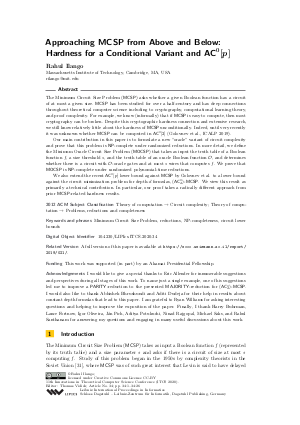LIPIcs.ITCS.2020.34.pdf
- Filesize: 0.66 MB
- 26 pages

 Creative Commons Attribution 3.0 Unported license
Creative Commons Attribution 3.0 Unported license

































Feedback for Dagstuhl Publishing